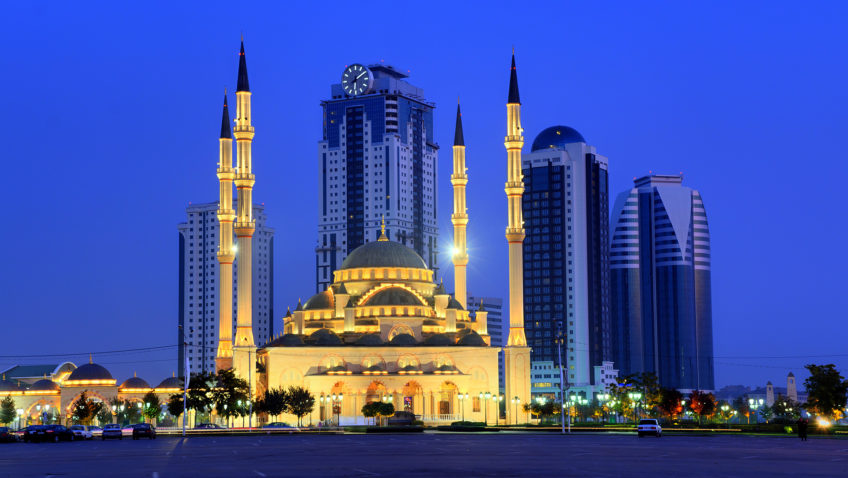Compiled by Eva Jovanova and Hristo Voynov
1. Bosnian Serbs were shaking the streets of Banja Luka this week in support of the “Justice for David” protests leader, Davor Dragicevic, who was released from detention this Wednesday. Davor Dragicevic is the father of the 21-year-old David who was found dead in a river this March and claims that the police is covering up the murder. The police on the other hand claim that David had drowned. While many of the protestors support Dragicevic’s claims, others join in solidarity against police incompetence in Republika Srpska. Thousands have joined the protests.
2. Ukrainian president Petro Poroshenko has ended the reign of martial law in Ukraine that was put in place following an incident between the Russian and Ukrainian navies. This marks an important de-escalation, as the days following the declaration of martial law saw Ukrainian armed forces and various militias mobilizing in major numbers. He also declared the elections will be held on March 31st, which was in question following the declaration of martial law.
3. Macedonian criminals will soon be at large. After the Parliament passed the controversial amnesty law last week that ensure the release of people who were involved in the attempted coup d’état in April 2017, dozens have already filed for amnesty. Thirty-five people are still standing trial for ramping the Parliament. Even people who committed violent attacks on MPs have filed for amnesty. Whereas the court is turning some of the pleas down, it has already granted amnesty to 12 people. Passing the amnesty law was a maneuver by the SDSM, the party in power, and served to secure the necessary votes in Parliament for passing the Prespa agreement on Macedonia’s name change.
4. Chechnian leader Ramzan Kadyrov has stated that he is willing to step down from his position, which he has held onto since 2007. This was sudden and unexpected, as he is known for his heavy-handed ruling tactics and his luxurious lifestyle that his position affords him. At 42 and having won the 2016 Chechnian elections with a supposed 97.5% of the vote, it is unclear why he wants to step down. The major issue remains what will happen after he leaves, as his leadership has helped bring order to the troubled region.
5. Kosovo is extending the 100% tariffs on Serbian goods to all international import coming from Serbia. Kosovo initially introduced this measure against Serbia and Bosnia and Herzegovina in November, after it did not manage to gain the necessary votes to join the Interpol. Kosovo authorities claim that they would not revoke the taxes unless Belgrade recognizes Kosovo’s authorities and stops blocking Kosovo’s integration into international organizations. EU has raised attention that these tariffs are a breach of the CEFTA agreement on free trade, and numerous EU heads of states criticized Prishtina for this move. Kosovo’s citizens suffer the consequences of the tariffs.
6. The opposition in Hungary is capitalizing on sentiment from the ‘slave law’ passed last week which would drastically lower workers rights in the country. This included a major protest in the capital and a renewed push for a unified opposition, which has been in the works in the country for a while but has consistently failed to manifest itself because of the majority of the population’s loyalty to the ruling party. The president, Janos Ader, is a new target of these efforts, as he is now being accused of being a FIDESZ and Viktor Orban loyalist for his support of the slave law.
7. Serbia might be headed toward an early general election in Spring 2019. The speculation existed at least at the beginning of the protests against Vucic’s autocratic rule, which now carry the slogan “one of five million”, after Vucic stated that he would not fulfill any of the protestors’ demands even if they numbered five million. This week, the opposition leader, Vuk Jeremic, believes that Vucic would schedule an early election. He claims that such an early election would make sense only if all opposition leaders were united against Vucic’s SNS.
8. Russia appears to have won the Syrian conflict with the US decision to leave the country. While it should be noted that Russian leadership is skeptical to what extent the US will leave and what efforts the international anti-ISIS coalition will continue, but with the current position on the ground, Russia and its allies will be in the best position to ensure their power in the country. Russia is also planning on discussing future actions with Turkey, but the two have vastly different aims for the country. While Russia has vastly reduced its manpower in Syria, it still maintains a presence and routinely helps the Syrian Army with air support, and reducing this will surely help its budget in the following years.
9. Montenegro’s Church might soon become independent. President Milo Djukanovic announced that the Serbian Orthodox Church in Montenegro is undermining Montenegro’s independence. The Serbian Orthodox Church is the dominant church in the country. The Montenegrin Orthodox Church had officially received autocephaly in 1993, but it has not been recognized internationally yet. Montenegro gained its independence from Serbia in 2006.
10. Former Slovakian interior minister Robert Kaliňák has left his position in parliament, creating rumors of a possible run in the 2020 general elections. His is in a great position to run in these upcoming elections, as he is from the social-democratic Smer party which holds much of the parliament, but also because he is the most qualified, having been interior minister three different times. He and other high profile politicians have seen a fall from grace this year because of civil society’s reaction to the murder of investigative journalist JánKuciak and his fiancée, which may hurt any future political career, even if his resignation was because of the response to the murder and not for any direct ties to it.


0 comments